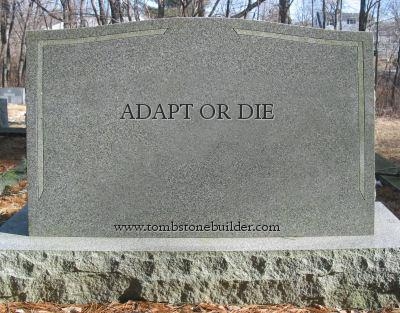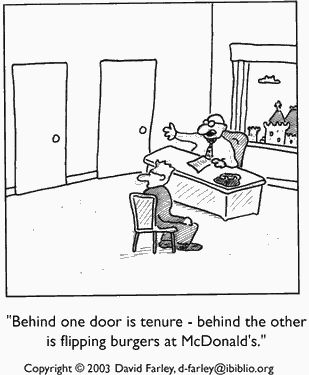Nurses are an equal, if not superior choice, to administer anesthesia
BY DAVID L. KNOWLTON
Unlike so many others in the health care policy arena who find themselves concerned with bottom lines, gored oxen and political consequences, my job as President and CEO of the New Jersey Health Care Quality Institute is a relatively easy one. I have a clear focus: health care quality and patient safety.
So when the Institute was asked to weigh in on the issue of whether New Jersey Advanced Practice Nurse Anesthetists should remain the only Advanced Practice Nurses required to have the presence or direct supervision of a physician certified in their specialty (Anesthesiologists), we did not hesitate. The clear answer from a patient safety point of view is unequivocally No. The cause of health care quality is not advanced by requiring supervision and may, in fact, be harmed. In my view patient safety is the only issue that should matter in this increasingly heated issue exchange.
It is important to understand the history of anesthesiology in America to fully comprehend this issue and why nurses are an equal, if not superior choice, medically for this procedure. As I testified before the Department of Health and Senior Services Health Care Administration Board which correctly advanced regulations eliminating the supervision requirement, the very first professional that provided dedicated coverage to a patient under anesthesia was a nurse. That was more than 125 years ago. Physicians did not follow until some three decades later. Since that time, nurse anesthetists have grown to providing more than 25 million anesthesia applications annually with a safety record of which nearly every medical professional would be proud.
In fact, this is not even a close call when it comes to patient safety. Every peer-reviewed study that has ever been conducted on the issue and there have been many has reached the same conclusion.
Nurse Anesthetists have performed at the same level of Anesthesiologists or better than Anesthesiologists. Its a safe record and in the field of health care quality, where there are so many failures in this nation for which we should be ashamed, this is one to be admired.
I will cite just one of the studies not only because it is the most recent, but because it is also the most comprehensive and the most compelling. The study was published in the August 2010 issue of Health Affairs and it says everything one needs to know just by its title, No Harm Found When Nurse Anesthetists Work Without Supervision by Physicians. The study examined nearly 500,000 individual cases and confirms what previous studies have clearly demonstrated: Advanced Practice Nurse Anesthetists provide safe, high-quality care. The study also shows the quality of care administered is optimal, regardless of whether physician supervision is conducted or not.
This most recent study followed up on a Federal government decision in 2001 that permitted states to opt out of the Medicare physician supervision requirement for Nurse Anesthetists. Since this option was offered, 16 states most recently Colorado this past September have opted out. The study concluded that the Medicare physician supervision rule is obsolete and unnecessary. In fact, one of the studys authors, Jerry Cromwell, PhD, said We find no evidence that opting out of the oversight requirement harms patients in any way.
And there is an objective approach to assess this risk. As imperfect as the medical malpractice insurance system is, it is still a good gauge of risk and dangers. It is interesting to note that the average New Jersey physician Anesthesiologists malpractice rate ranges from $14,124 to $31,843 annually. Compare that to the $120,198 to $197,425 range for OB/GYNs. This difference in rates demonstrates that an OB/GYN has at least six and up to 16 times the risk of an Anesthesiologist.
Interestingly enough, Certified Nurse Midwives, who have similar degree and licensure requirements as Nurse Anesthetists, may practice and treat patients independently. These Midwives work unsupervised in both hospital Labor & Delivery units as well as free-standing birthing centers. It seems counterintuitive to require a physician to be present to directly supervise a Nurse Anesthetists care while no such oversight is deemed necessary for Nurse Midwives given that both nursing specialties have an excellent safety record and Nurse Anesthetists have between six and 16 times less risk involved in the care they provide. Additionally, while Nurse Midwives often practice on their own with no physician present or even nearby, Nurse Anesthetists never practice without a physician present and part of their team. Further, the current Advanced Practice Nursing rules require collaboration by a physician with all of their protocols and medications before they can be administered. Requiring the unnecessary, duplicative and costly presence of an Anesthesiologist to supervise an Advanced Practice Nurse Anesthetists makes no sense whatsoever.
New Jersey should do the right thing and take the course that leads to better health care quality outcomes. The Commissioner of Health & Senior Services should ignore the distracting, economically-motivated arguments on this issue and focus only on quality, safety and the health of the patient. That path is clear; Advanced Practice Nurse Anesthetists should be treated as all other Advanced Practice Nurses and should not be required to have an Anesthesiologist present for the safe delivery of their care.
David L. Knowlton, President and CEO of the New Jersey Health Care Quality Institute headquartered in West Trenton, is a former Deputy Commissioner of Health during the administration of Governor Tom Kean.













